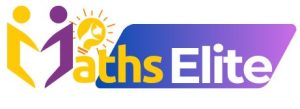In the digital age, artificial intelligence (AI) is transforming various aspects of our lives, and education is no exception. ‘AI’ holds the promise of revolutionizing the way to learn, teach, and administer educational programs. There is no denying that it has potentially many benefits.
What is Artificial Intelligence:
Artificial Intelligence.” It refers to the simulation of human intelligence in machines that are programmed to think and learn like humans. Artificial Intelligence is a tool to do tasks that humans don’t want to or simply can’t reasonably do.
Artificial Intelligence is behind tools like Siri, self-driving cars, security software, ChatGPT, customer service chatbots, and image generators and editors.
AI is better equipped to digest large amounts of data or solve complex logic problems.
Artificial Intelligence and Its Future in the Education System
“AI” can act as a companion for teachers by doing some of their work for them. It is also helpful considering the large workload teachers deal with and global teacher shortages. Here are some ways AI can enhance the classroom:
Several Advantages of employing AI in education include:
1. Innovations and Personalized Studying:
- AI can also help make lessons more accessible with live captions on videos or streams.
- AI tailors learning experiences to individual needs.
- students receive customized learning paths that match their pace and learning style.
- AI optimizes curriculum design, offering tailored content and personalized recommendations by addressing specific strengths and weaknesses.
2. Automated Grading:
- AI streamlines the assessment process for educators.
- Automated grading systems efficiently evaluate assignments, quizzes, and tests, providing swift and accurate feedback to students.
- This automation not only frees up valuable teaching time but also ensures consistency and fairness in grading.
3. Feedback:
- AI can provide timely and constructive feedback to students.
- Educators can focus on interpreting feedback and guiding students toward growth.
4. Adaptive Learning:
- AI analyzes each student’s progress, preferences, and learning pace to adjust the curriculum and content.
- Students benefit from a deeper understanding of subjects, as AI-driven platforms suggest relevant content aligned with their learning patterns.
5. Integration of Smart Content:
- Smart content fosters deeper understanding and retention of concepts.
- AI-powered content creation tools assist educators in developing high-quality teaching and learning experiences.
- AI enables the creation of interactive and dynamic educational content.
- Imagine learning science through immersive simulations or exploring historical events through interactive timelines.
6. Enhanced efficiency:
- freeing educators from time-consuming duties.
- This efficiency allows teachers to allocate more time to interactive teaching, feedback, and mentorship.
7. Access to vast resources:
- AI-driven platforms can provide students with access to a wealth of educational content and resources, from interactive simulations to online libraries.
- This expanded resource pool enriches the learning experience and promotes self-directed learning.
8. Immediate feedback
- AI can provide students with instantaneous and detailed feedback on their performance, allowing them to understand their strengths and weaknesses.
- Timely feedback enhances comprehension and learning outcomes. Teachers can also use this feedback to know what to focus on in future lessons.
9. Predictive analytics
- Early intervention based on AI-generated insights can help support struggling students or adapt resources to meet learner needs.
10. Data privacy and security
- Educational institutions must prioritize data privacy and security.
- Collecting and analyzing large volumes of student data raises concerns about protecting sensitive information.
11. Balancing automation with human interaction
- It cannot replace the invaluable human interaction and mentorship provided by educators.
- Striking a balance between technology and personal interaction is crucial for a well-rounded education.
12. Bias and fairness
- AI can inherit biases from the data they are trained on.
- Educational institutions must work to identify and rectify algorithmic bias to ensure fair and equitable learning opportunities for all students.
13. Professional development
- Teachers and staff may require training to effectively integrate ‘AI’ into the curriculum and educational practices.
- Professional development should be a priority to ensure that all educators can harness AI’s full potential.
14. Lesson plans and academic integrity
- ‘AI’ can write essays, solve complex math problems, and even generate computer code.
- Teachers and administrators need to embrace AI; teaching it and using it effectively will change education as we know it.
15. Teacher-Student Collaboration:
- AI doesn’t replace teachers. Educators can leverage AI tools to enhance teaching methods, track student progress, and provide personalized guidance.
- The collaboration between teachers and AI systems can lead to more effective learning outcomes.
Frequently Asked Questions on AI in Education
Q.1 What is the role of AI in education?
Ans. AI in education aims to enhance learning experiences by leveraging intelligent technologies to personalize education, automate administrative tasks, and provide advanced analytics for better decision-making.
Q.2 Can AI assist teachers in the classroom?
Ans: Yes, AI can support teachers by automating routine tasks like grading, providing personalized learning materials, and offering feedback.
Q.3 How does AI impact educational equity?
Ans: AI has the potential to address educational inequalities by providing personalized learning experiences and resources to students, regardless of their geographical location or socio-economic background.
Q.4 What challenges does AI face in education?
Ans: Challenges include concerns about data privacy, the need for teacher training in AI integration, potential biases in algorithms, and ensuring that AI applications align with educational goals.
Q.5 Are there ethical considerations with AI in education?
Ans: Yes, ethical considerations include issues related to privacy, data security, algorithmic bias, and the responsible use of AI in decision-making
